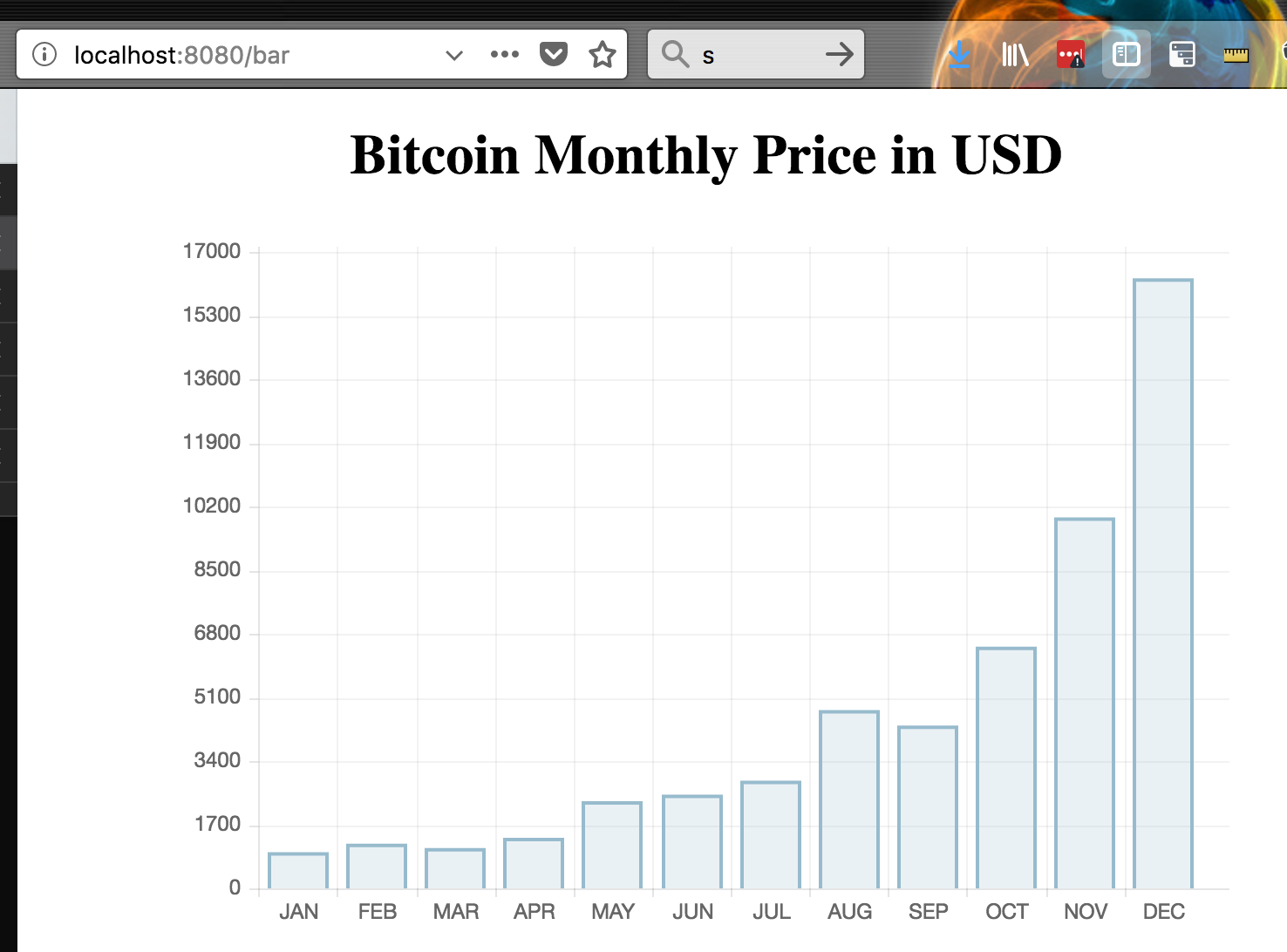- Published on
Graphing Pretty Charts with Python Flask and Chartjs
- Authors

- Name
- Ruan Bekker
- @ruanbekker

I am a big sucker for Charts and Graphs, and today I found one awesome library called Chart.js, which we will use with Python Flask Web Framework, to graph our data.
As Bitcoin is doing so well, I decided to graph the monthly Bitcoin price from January up until now.
Dependencies:
Install Flask:
pip install flask
Create the files and directories:
touch app.py
mkdir templates
We need the Chart.js library, but I will use the CDN version, in my html.
Creating the Flask App:
Our data that we want to graph will be hard-coded in our application, but there are many ways to make this more dynamic, in your app.py:
from flask import Flask, Markup, render_template
app = Flask(__name__)
labels = [
'JAN', 'FEB', 'MAR', 'APR',
'MAY', 'JUN', 'JUL', 'AUG',
'SEP', 'OCT', 'NOV', 'DEC'
]
values = [
967.67, 1190.89, 1079.75, 1349.19,
2328.91, 2504.28, 2873.83, 4764.87,
4349.29, 6458.30, 9907, 16297
]
colors = [
"#F7464A", "#46BFBD", "#FDB45C", "#FEDCBA",
"#ABCDEF", "#DDDDDD", "#ABCABC", "#4169E1",
"#C71585", "#FF4500", "#FEDCBA", "#46BFBD"]
@app.route('/bar')
def bar():
bar_labels=labels
bar_values=values
return render_template('bar_chart.html', title='Bitcoin Monthly Price in USD', max=17000, labels=bar_labels, values=bar_values)
@app.route('/line')
def line():
line_labels=labels
line_values=values
return render_template('line_chart.html', title='Bitcoin Monthly Price in USD', max=17000, labels=line_labels, values=line_values)
@app.route('/pie')
def pie():
pie_labels = labels
pie_values = values
return render_template('pie_chart.html', title='Bitcoin Monthly Price in USD', max=17000, set=zip(values, labels, colors))
if __name__ == '__main__':
app.run(host='0.0.0.0', port=8080)
Populating the HTML Static Content:
As we are using render_template we need to populate our html files in our templates/ directory. As you can see we have 3 different html files:
templates/bar_chart.html:
templates/line_chart.html:
templates/pie_chart.html:
Running our Application:
As you can see, we have 3 endpoints, each representing a different chart style:
- /line
- /bar
- /pie
Let's start our flask application:
python app.py
When we access our /line endpoint:

When we access our /bar endpoint:

When we access our /pie endpoint:

Resources:
- https://pythonspot.com/flask-and-great-looking-charts-using-chart-js/
- http://www.chartjs.org/docs/latest/#installation
Thank You
Thanks for reading, feel free to check out my website, feel free to subscribe to my newsletter or follow me at @ruanbekker on Twitter.
- Linktree: https://go.ruan.dev/links
- Patreon: https://go.ruan.dev/patreon
